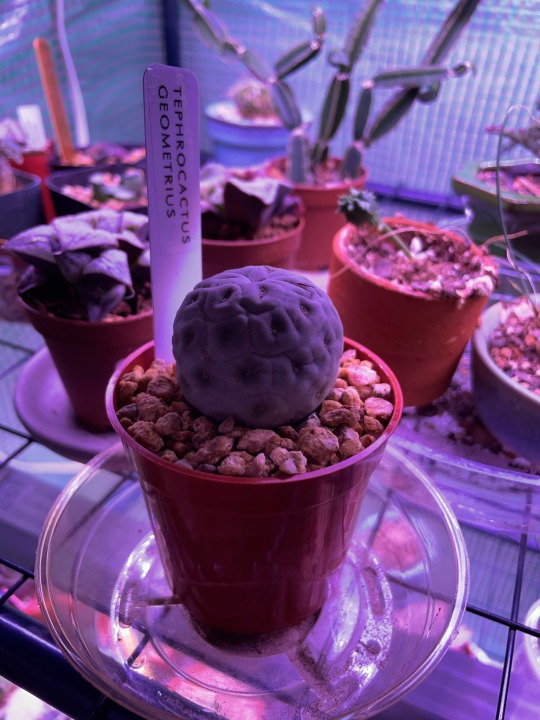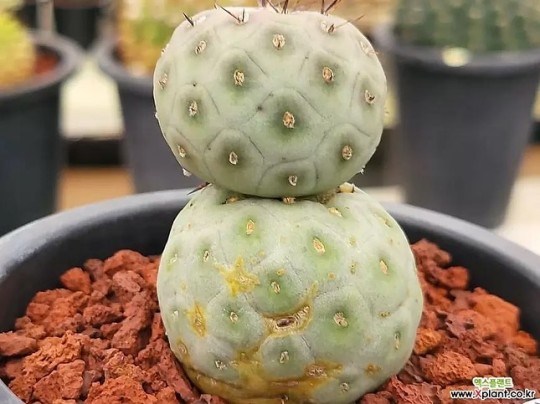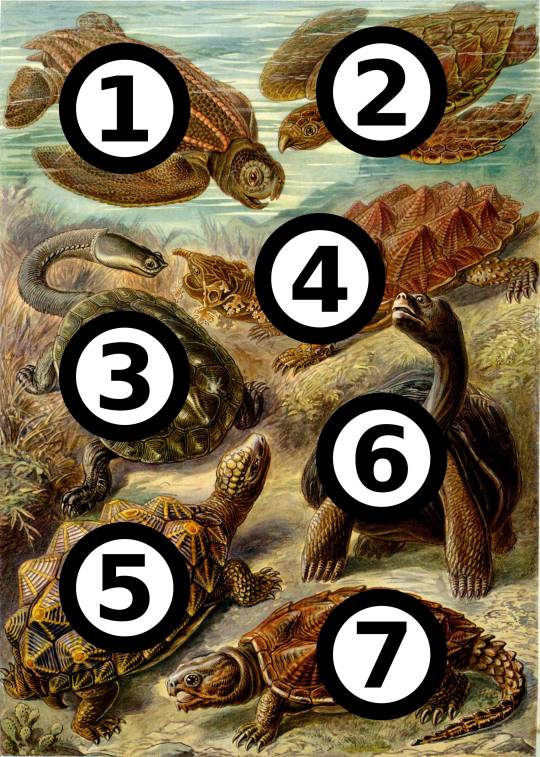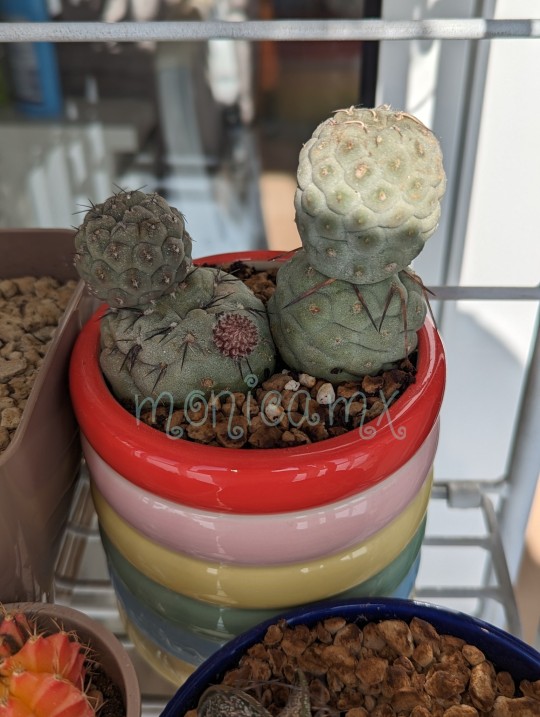#geometricus
Explore tagged Tumblr posts
Text
Goniobranchus geometricus is a species of colourful sea slug, a dorid nudibranch, a marine gastropod mollusc in the family Chromodorididae.
#reddit#fauna#natureisfuckinglit#paargad#goniobranchus geometricus#sea slug#nudibranch#animal#dorid nudibranch#marine gastropod mollusc#chromodorididae
75 notes
·
View notes
Text

Forgot to post it here but I have obtained the Cactus Sphere (Tephrocactus geometricus).
It’s rooting nicely and I look forward to putting it outside this summer.
60 notes
·
View notes
Text



latrodectus geometricus . the brown widow
brown windows currently are infesting my work and i could not be more pleased. love my aggressive little girls 🤭
2 notes
·
View notes
Text


#spider eggs#spider egg sacs#brown widow#latrodectus geometricus#spiders#arachnids#bird house#van nuys
0 notes
Text



Few spiders in the United States have a more fearsome reputation than black widows. But throughout the South, the bulbous arachnids with red hourglasses on their bellies are engaged in a lethal competition with the brown widow, a relative from abroad — and they’re losing.
This isn’t a case of one species outcompeting another for food or habitat. In research published Monday in the Annals of the Entomological Society of America, biologists found that young brown widow spiders have a dramatic tendency to seek out and kill their American cousins.
“Brown widows will aggressively go after black widows, chase them down,” said Louis Coticchio, a science tutor at St. Petersburg College in Florida and an author of the paper. “They don’t play well with being neighbors.”
Three species of black widows are native to North America, including the Southern black widow, Latrodectus mactans. Exceedingly shy insect hunters, black widows like to live in crawl spaces, woodpiles and sheds. This fondness for human habitation does occasionally lead to people getting bit — 1,004 cases in 2021, according to America’s Poison Centers — but deaths are extremely rare. “Black widows generally don’t bite when harassed,” preferring to run, play dead or flick webbing at a poking finger, Mr. Coticchio said. “It’s only pinching them that’ll get you bit.”
Mr. Cottichio spent several years working as a venomous species zookeeper in California, looking for spiders in his spare time. While hunting for western black widows in suburban Los Angeles, he noticed that wherever they and brown widows overlapped, the black widows eventually disappeared. Upon starting his bachelor’s degree at the University of South Florida, he found the same thing. “Every time I returned to a site, there were less and less of them until there were none.”
Brown widows — a closely related species — arrived in Florida around 1935, probably from South Africa. A single mother produces multiple egg sacs and potentially thousands of spiderlings. Like black widows, brown widows like to live around people. Brown widows are less venomous than their native cousins, and aren’t at all shy.
To figure out why, Mr. Coticchio and his colleagues looked at the mathematical population modeling of the two widow species, which showed that both black and brown widows were more likely to get eaten than to starve — suggesting that they aren’t competing over scarce prey.
When they paired brown and black widows in container habitats — along with other related species like red house spiders and triangulate cobweb spiders — the researchers found that brown widows were 6.6 times as likely to kill black widows than other species. Young brown widows in particular made a beeline for their native cousins, eating them 80 percent of the time.

Adult brown widows were less belligerent, the researchers found, and significantly less likely to successfully kill a black widow hiding in an established web. But they still instigated observed attacks. “Southern black widows were never the aggressor and always the prey,” Mr. Cottichio said.
What drives such predation attempts? One possibility lies in the spiders’ respective temperaments, the researchers suggest: Brown widows tend to be bold, investigating nearby webs and attacking spiders that don’t resist. House and cobweb spiders challenge them, and brown widows often go on to coexist with them peacefully. The shy, retiring black widows generally tried to escape, fighting back only as a last resort.
“We have found similarly high levels of aggression and activity in invasive brown widows in Israel,” said Monica Mowery, a spider biologist at Ben-Gurion University of the Negev who was not involved in the new study. “One key remaining question is whether brown widows are outcompeting local species” in other parts of the world that they have invaded, she said.
In the Southern and Western United States, the outlook for urban-living black widows isn’t good. But the species does have a fallback: Black widows like deserts and woodlands as much as suburbs, Mr. Cottichio said, while brown widows prefer urban and suburban areas. The ongoing contest might end with black widows being cast out of crawl spaces and attics in favor of the wilderness, where their aggressive cousins won’t follow.
In the meantime, Mr. Cottichio said, if you find yourself on a property with black widows, don’t be so quick to kill them: They’re already having a bad time.
“If you have some on your property,” he said, “do a good deed, and move it outside somewhere.��
A version of this article appears in print on March 21, 2023, Section D, Page 2 of the New York edition with the headline: For Black Widows, a Brown Cousin Is the Real Killer.
#latrodectus mactans#latrodectus geometricus#widow spiders#articles#black widows#brown widows#new york times
0 notes
Text
Les araignées mangent les serpents (aussi)
Nouvel article publié sur https://www.2tout2rien.fr/les-araignees-mangent-les-serpents-aussi/
Les araignées mangent les serpents (aussi)

#araignée#australie#Bothrops atrox#Cemophora coccinea#couleuvre#crotale#etude#fer-de-lance#Indotyphlops braminus#Latrodectus geometricus#Latrodectus geometryus#Latrodectus hesperus#Leptotyphlopidae#mexique#Micruroides euryxanthus#predation#repas#reptile#serpent#Steatoda triangulosa#tarentule#Thamnophis sirtalis#Theraphosa blondi#toile#USA#veuve#veuve noire#animaux
0 notes
Text
Very beautiful 😍 pretty sure that's a Brown Widow, however, as Brown Widow egg sacks can have that spikey appearance whereas Black Widows have more spherical egg sacks. The name Brown Widow is sort of a misnomer because while they are oftentimes brown they can be a dark black as well.
Beautiful lady with egg sacs. :3

4 notes
·
View notes
Text

Geometric Tortoise (Psammobates geometricus), family Testudinidae, Western Cape, South Africa
CRITICALLY ENDANGERED.
photograph by Johan Marais
202 notes
·
View notes
Note
Trick or treat!


Goniobranchus geometricus for you!
16 notes
·
View notes
Text

My Orb Stack is putting out more orblets!!!
This is Tephrocactus alexanderi (T. geometricus in the horticultural trade), a cactus in the same subfamily as Opuntia. From what I understand they can be finicky sometimes so I was worried I wasn’t going to be able to acclimate this one properly since I’ve had issues before with cactuses I bought as plants and not seed but this one made it!!! I’m glad to see it put out more branches instead of stalling forever like my other ones.
The seller recommended not watering it for half the year, only starting in May and watering throughout the summer. I had tried to grow this one from seed but had too much trouble keeping the seedlings alive.
22 notes
·
View notes
Photo

눈사람인 줄 알았는데 #습지야 리는 이름의 #선인장 이래요 ⛄️🤣🌵 #tephrocactus geometricus 국내최대 식물쇼핑몰 엑스플랜트 xplant.co.kr https://www.instagram.com/p/CpzfwFmL5C2/?igshid=NGJjMDIxMWI=
21 notes
·
View notes
Text
Sea Slug Pt 3
(More) California Blue Dorid


Felimare picta



Felimida binza



Felimida sphoni


Glossodoris buko



Glossodoris cincta




Goniobranchus annulatus



Goniobranchus charlottae



Goniobranchus fidelis


Goniobranchus geometricus


Goniobranchus gleniei


Goniobranchus kuniei

2 notes
·
View notes
Text
Ernst Haeckel was born #OTD (16 Feb 1834 - 9 Aug 1919). Here are two of his Kunstformen der Natur (1904) reptile plates that don't get shared as often, along with keys to the species depicted: Plate 79 Lacertilia (lizards) + Plate 89 Chelonia (turtles).




Key to Plate 79: 1. Cameroon Sailfin Chameleon 2. Chameleon Forest Dragon 3. Flying Dragon 4. Texas Horned Lizard 5. Kuhl's Flying Gecko 6. Common Basilisk 7. Frill-necked Lizard 8. Thorny Devil - 1.Chamaeleon montium (Buchholz) = Trioceros montium/Chamaeleo montium Buchholz, 1874 (See Trioceros montium) 2. Lophyrus tigrinus (Duméril) = Gonocephalus chamaeleontinus Laurenti, 1768 (See Gonocephalus chamaeleontinus) 3. Draconellus volans (Linné) = Draco volans Linnaeus, 1758 (See Draco volans) 4. Phrynosoma cornutum (Wiegmann) = Phrynosoma cornutum (Harlan, 1825) (See Phrynosoma cornutum) 5. Ptychozoon homalocephalum (Kuhl) = Ptychozoon kuhli Stejneger, 1902 (See Ptychozoon kuhli) 6. Basiliscus americanus (Daudin) = Basiliscus basiliscus (Linnaeus, 1758) (See Basiliscus basiliscus) 7. Chlamydosaurus kingii (Gray) = Chlamydosaurus kingii Gray, 1827 (See Chlamydosaurus kingii) 8. Moloch horridus (Gray) = Moloch horridus Gray, 1841 (See Moloch horridus)
Key to Plate 89: 1: Leatherback Turtle 2: Hawksbill Turtle 3: Argentine Snake-necked Turtle 4: Mata Mata 5: Geometric Tortoise 6: Galápagos Tortoise 7: Common Snapping Turtle - 1. Dermatochelys coriacea (Blainville) = Dermochelys coriacea (Vandelli, 1761) 2. Caretta imbricata (Gray) = Eretmochelys imbricata (Linnaeus, 1766) 3. Hydromeda tectifera (Wagler) = Hydromedusa tectifera Cope, 1869 4. Chelys fimbriata (Duméril) = Geochelone nigra (Quoy & Gaimard, 1824) 5. Testudo geometrica (Linné) = Psammobates geometricus (Linnaeus, 1758) 6. Testudo elephantina (Duméril) = Dipsochelys dussumieri Gray, 1831 7. Chelydra serpentina (Schweigger) = Chelydra serpentina (Linnaeus, 1758)
#turtle#turtles#tortoise#tortoises#lizard#lizards#reptiles#Chelonia#Testudines#Lacertilia#herpetology#natural history art#scientific illusration#Ernst Haeckel#European art#20th century art#1900s#Art Nouveau#illustration#print#book plate#Kunstformen der Natur#OTD#animals in art
5 notes
·
View notes
Text
Geometric Tortoise (Psammobates geometricus)
Nestled within the rugged landscapes of South Africa lies a true gem of biodiversity, the . With its distinctive geometric patterned shell and unique habitat preferences, this species stands out as an emblem of resilience and adaptation in the face of environmental challenges. However, despite its remarkable qualities, the Geometric Tortoise faces numerous threats to its survival, making…

View On WordPress
0 notes
Text

Latrodectus geometricus (2023) Los Angeles, CA Scaled up x6.66 onto 23 cm x 30 cm sheet Bathed in acetic acid prior to freezing Abdomen markings lost post-freeze, followed by rapid decay and leaking biological fluids
0 notes
